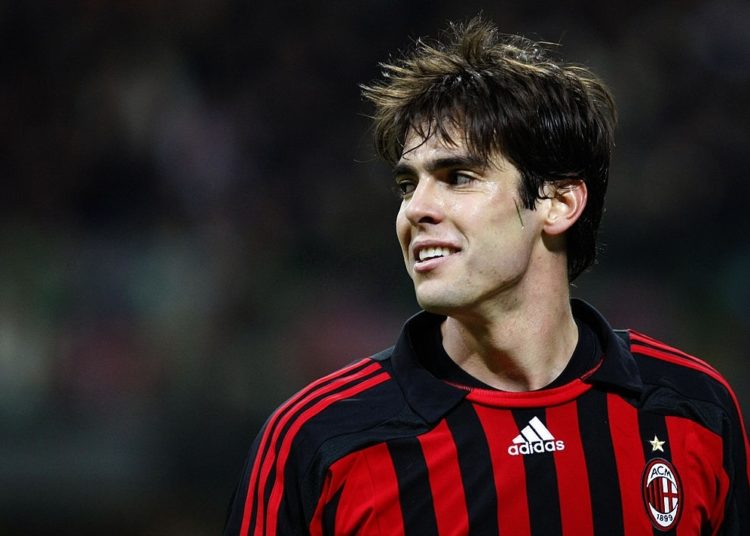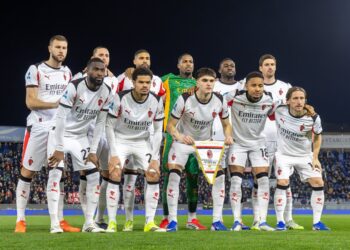AC Milan's legendary Brazilian playmaker and winner of Ballon d'Or, spoke to fourfourtwo.com and answered some interesting questions. Here are his words:
Is it true Berlusconi attempted to lure you out of retirement to sign for Monza in Serie B recently? Was that ever a genuine possibility?
"Yes it happened. Well, the offer didn’t come directly from Berlusconi – it came through Adriano Galliani. But they were partners, so it was basically Berlusconi behind it. I was already retired when Galliani called to see if I was interested in going to Monza and getting to know the club. They asked if I was available to play a part in their project, but I’d already decided to retire and couldn’t accept their offer."
How difficult was it to adjust from playing in Sao Paulo to life in Milan, and cementing yourself among so many legendary footballers at such a young age?
"When I signed for Milan, I had very low expectations about my future there. Don’t get me wrong: that doesn’t mean a lack of confidence. It’s about not creating big expectations for yourself. At that moment, there were several Brazilian players who didn’t adapt to the European lifestyle; a lot of young Brazilians signed for big clubs in Europe but couldn’t stay long, because of the new football style or their new lives off the pitch."
"European clubs were getting cautious about investing in Brazilian youngsters, so my mindset was this: ‘Just in case everything goes wrong, I will stay there anyway’. No matter if I don’t like the food, or the place, or if understanding the language is really hard – I want to stay in Milan. And no matter if I don’t play much, because when I arrived the guys in my position were Rivaldo and Rui Costa. But having arrived with low expectations, things were simply too good for me. The food was amazing, the place was excellent, and things went very well on the pitch. It was a wonderful experience."
You quickly took Rui Costa’s place in the Milan side. How much confidence did that give you?
"When Milan signed me, Carlo Ancelotti had a different idea about my style. Then, after my first training sessions in Italy, I realised that everyone at the club was impressed with me. Ancelotti soon saw I had potential. He gave me some opportunities and I was able to make the most of them. Above all, the whole process was so pleasing because there was never any conflict with my team-mates. It’s the other way around, actually: Rivaldo is still a great friend of mine today and Rui Costa became a kind of mentor to me. In every game, he used to come beside me at half-time and offer some tips about positioning, or other ideas about how I could improve during the match. That proved invaluable for my development. We were both fighting for a place in the starting line-up, but he was never worried about that – he was only concerned about helping me to develop into a better footballer. He was pure class... what a top lad. I’m very grateful to him, and every other member of the squad. My adaptation was smooth in Milan."
Did you ever get on the wrong side of Gennaro Gattuso?
"Mate, there are many amazing stories about Gennaro! He’s such a nice lad – a big-hearted man – but he has that very unique style that everyone knows. Obviously the Milan players loved to make jokes about his lack of patience and his… well, let’s just say his lack of well-mannered behaviours. [Laughs] But we’d make those jokes and sprint away so he couldn’t catch us! Believe me, he would slap your neck, with his infamous style, and I’m sure you can imagine how much it hurts. But apart from several slaps on my neck, it was a privilege to be his team-mate. He’s a generous person and a lovely friend."
The incredible Milan side you played in won only one league title. Do you think you should have won more, or was Serie A just so competitive then?
"Perhaps it’s a bit of both. We obviously could have won some more titles, but it’s also true that the competition was incredibly high. Juventus, Inter, Roma and Lazio had top-quality squads. Each of those sides had amazing footballers who are now considered legends of the game. I’m talking about Francesco Totti at Roma, the great Argentine guys at Inter [such as Esteban Cambiasso and Javier Zanetti], as well as Adriano and Zlatan Ibrahimovic, and Juventus had that generation with Fabio Cannavaro, Lilian Thuram, Alessandro Del Piero, David Trezeguet and more. But we also had a strong squad. It was a beautiful moment for Serie A, because the top Italian sides were also real contenders in the Champions League. So, it’s hard to say that we should have won more league titles. We fought until the very end in every competition we played in."
How hard did the 2005 final hit you? And how did it feel to get one back on us – Liverpool – two years later?
"Obviously it was tough. It’s so difficult to reach a Champions League final, and then we lost it in that way. I didn’t know if I’d get another opportunity to play in a European final. I was so close to lifting the trophy and, ‘Will I ever get this chance again?’ was going through my mind, unstoppably. That defeat hurt us because it wasn’t a game where we were dominated – it was the other way around. We were in charge. But suddenly Liverpool fought back, then beat us on penalties. I was afraid I’d never get a second chance, but thankfully it came soon and it was a relief. It’s a massive trophy and I was over the moon to help my team win it. A lot of lessons were learned; that was important for my development, too."
Was the assist for Milan’s third goal in Istanbul the best of your career?
"It’s definitely one of my best – not just because of its beauty, but because it was in a Champions League final. It’s a sweet feeling to do that in such an important match. But the assist can only exist if your forward puts the ball in the back of net, no? Hernan Crespo did that part brilliantly, which was so crucial to the beauty of that moment. I definitely keep that pass in a special place of my memories."
Why did you touch the Champions League trophy in 2005? Did you know it’s considered bad luck in England?
You were on another level in the two Champions League semi-final legs against Manchester United in 2007, scoring three goals. What’s the one display in your career that makes you feel the most proud?
"Between 2006 and 2008, I was at my peak both physically and mentally. You mature and your body understands and reacts perfectly to what needs to be done. I was calm enough to make the right decisions during that period, and I put in some great performances across those three years. Those ones against Manchester United are among the best, definitely. The two legs were unforgettable. Many Italian journalists and Milan fans consider that game at San Siro [a 3-0 win] the perfect match."
Is there any truth in the rumour that you rejected Roman Abramovich’s offer to join Chelsea in 2009, before signing for Real Madrid?
"No, there wasn’t an official approach from Chelsea in 2009 – just informal talks, as Ancelotti was taking charge there and we had a great relationship. The real offer I got from an English club was Manchester City’s, around six months before I moved to Madrid. City were in the early days of their project to become a dominant club in Europe, and they wanted me to be one of their leaders on the pitch. But I didn’t think it was the right time to leave Milan. In my mind, Real Madrid was the only club I’d ever consider going to if Milan wanted me to leave. That wasn’t the politics of Milan, though: at the time, it wasn’t common for them to sell big players. The first to leave was [Andriy] Shevchenko, but the club didn’t want to let him go. They forced Sheva to make his wish to leave public – he had to announce his intentions in a press conference. It was different in my case. When City made the offer, Milan told me they were happy with it and keen to go ahead with the deal, to organise their finances. The doors were open to leave, and I said no. But I also told the club I’d happily go to Real Madrid if an offer came in the next window. It did."
When you fractured your spine at 18, were you hoping just to play football again at any level, or did you dream of making it to the top?
"There was a great deal of concern and uncertainty. The biggest question was, ‘Will I be able to play football again?’ – I was playing for Sao Paulo and Brazil’s youth teams, so it was such a decisive moment for my potential career in football. At that stage, you don’t know if the opportunity will arise for you in the first team. Then my doubts were suddenly larger, more drastic.
I didn’t know if I’d be able to play the game I loved ever again. My ambition was to become a professional footballer, but my love for football goes beyond that – I still play nowadays, because I love the game. It’s fun.
So, my first question to the doctor was when I’d be able to play football again. [FFT: What did he say?] He just said that perhaps I wasn’t understanding the seriousness of what had happened. The doctor told me it wasn’t the time to ask too many questions. Instead, I should be grateful and feel lucky because in most similar [swimming pool] accidents, the person can’t walk any more. It was a real miracle. From then on, it was about building my faith and working hard to recover."
What was Milan head honcho Silvio Berlusconi like? Any famous stories from your time together?
"It’s impressive to think about the odd encounters that football can generate. For instance, when I had my very first contact with all of those Selecao stars back in 2002, it happened in Barcelona, after the Brazil squad was announced for the World Cup. Before that, I hadn’t met any of the guys who were playing for European clubs, so just imagine the situation that morning in Barcelona – I’ll never forget it. I went down to get some breakfast, and suddenly there was Ronaldo, Ronaldinho, Denilson, Rivaldo, Roberto Carlos, Cafu… oh my God! I used to play video games with these guys in; now I’m eating breakfast with them. I’m their team-mate and we’re going to play at the World Cup!
So, football is full of these unexpected encounters, and with Berlusconi it was definitely one of those. Everywhere he went, the attention on him couldn’t have been higher, as he was president of the club and also Prime Minister of the country. At the beginning, I didn’t know how I should behave near him. Then things become normal, you get used to it. Berlusconi was always present and helpful, and I’m so grateful for the time we worked together at Milan."















